duration 2:00
Wish you were here is a series in which we take the time to delve deeper into the themes and authors which dominate our programme in a relaxed and welcoming setting. It's a Dutch-language event, but we welcome everyone who wants to participate. In season 15|16, in the company of inspiring lecturers and scenes that have never been performed before, the work of Tennessee Williams (13 oct 15), Louis Couperus (7 dec 15), Jonathan Littell (15 feb 16) and Hugo Claus (25 apr 16) is placed in a broad cultural, social and political context in an informal way.
The title Wish you were here is our call to you. We wish you were here to listen to, view and enjoy this event, and to join us after the evening is concluded as visitors, actors and guests alike continue their discussions while enjoying drinks and refreshments.
#wishyouwerehere
In season 14|15, the main theme is ‘leadership’. Antigone, Maria Stuart and Shakespeare’s royal dramas all have at least one thing in common: they show how leaders make decisions which have extremely far-reaching consequences. They sometimes do so based on their convictions. They may do so reluctantly or when uncertain of the outcomes. We see how other people respond to those decisions: they can accede or they can oppose. The consequences are no less significant. We have taken the engaging dramas of Sophocles, Euripides, Shakespeare and Schiller as the basis for a series of four evenings at which prominent speakers from the worlds of politics, arts and science will discuss various aspects of leadership, interspersed by excerpts from the plays themselves.
In season 13|14 we would like to acquaint you with Eugene O’Neill, Georg Büchner and Ayn Rand. The theme that these intriguing authors have in common is that they do not shy away from the big, existential questions. Through their texts and vision and with unique guest speakers we explore the meaning of family, the yearning for revolution and the essence of the urge to create.
wish you were here, tsjechov - 16 apr 13
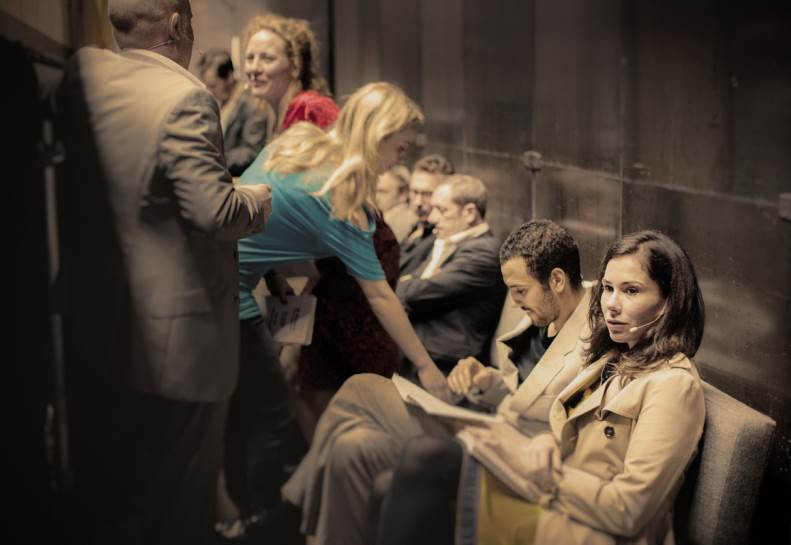
We finish season 12|13 with the beauty of Anton Chekhov. During the Holland Festival 2013, his The seagull - directed by Thomas Ostermeier – premieres with TA. You might also remember Tom Lanoye’s TA adaptation of Ivanov and Platonov: The Russians!.
Scenes and fragments of Chekhov’s short stories alternate with short anecdotes, like those of stage writer and director Gerardjan Rijnders who reveals Chekhov’s commandments of the theatre, those of publisher Wouter van Oorschot who delves into the short stories, NRC journalist Michel Krielaars who ushers the audience through important 19th Century political issues and cultural queries and author Toon Tellegen, who reads one of the serious stories together with Eelco Smits. Actors Helène Devos, Suzanne Grotenhuis, Chris Nietvelt, Frieda Pittoors, Gijs Scholten van Aschat, Eelco Smits and Bart Slegers take viewers on a search to Chekhov’s bare essence. Host of the evening Lucas de Man takes the audience on a journey to this multi faceted man.
‘It’s been a long time since I drank champagne’, Chekhov utters on July 2nd 1904 when his physician offers him a glass, for the author is dying and refuses to take oxygen. His remains are transported to Moscow in a train carriage that reads ‘Oyster transport’. All the more reason to raise our own champagne glasses on the season’s last Wish you were here- night, and give a toast to the absurdity of life that Chekhov cherished so.
wish you were here, bergman - 18 mrt 13

After two unique evenings starring Shakespeare and Ibsen, we focus our third Wish you were here- event on one of the greatest cineasts of the past century; briljant director and beloved author Ingmar Bergman. We take all the time we need to get to know more about the author who takes up such a prominent spot in the TA repertoire with his Scenes from a marriage, Cries and whispers and After the rehearsal/ Persona , which recently premiered.
Guest speakers such as film critic Hans Beerekamp, director Nanouk Leopold and author Charlotte Mutsaers talk about the value Bergman brings to their regarding of life and art. Alternating with the favourite scenes of Hans Kesting, Hugo Koolschijn, Celia Nufaar, Eelco Smits, Bart Slegers and Suzanne Grotenhuis along with never before performed texts, it is an evening for Bergman to come forth as an artist who, rather than slow and heavy, is pristine, lively and ever curious. As a conclusion to the evening we unwind and zoom out with wild strawberries, vodka and Swedish köter balls.
The Swedish artist Ingmar Bergman was one of a kind. Although he directed a lot of theatre it is mainly his much discussed films, such as Fanny and Alexander and The seventh seal, that earned him his fame. In his sixty-year long career he made films with every style and genre imaginable, in which he constantly posed questions regarding faith and morale. He threw conventions to the wind. He filmed death and marital fights, violence and passion. We are constanly shown people balancing on the wafer thin line between reality and neurosis, while he captures us with an unimaginable intensity.
wish you were here, ibsen - 17 dec 12
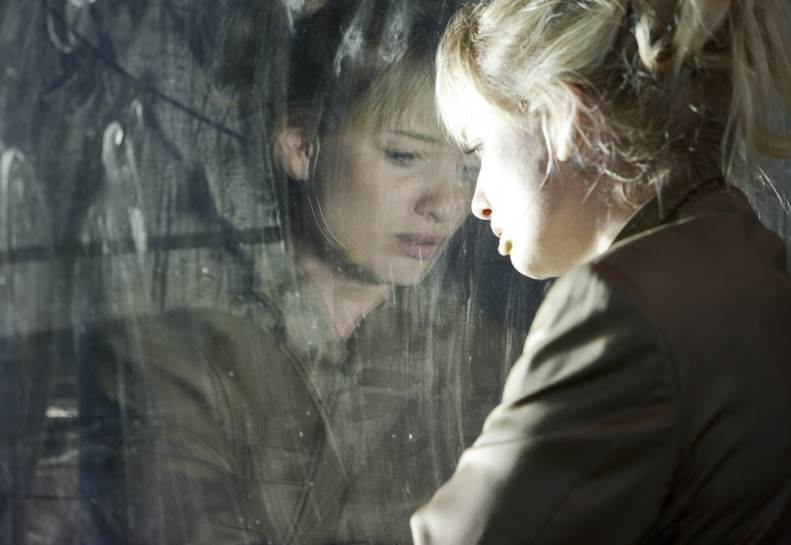
TA’s repertoire now boasts three of his pieces: Hedda Gabler, Ghosts and the recently premiered Nora. In this episode of Wish you were here, Ibsen’s scenes are interspersed with talks by guest speakers: Trudy Dehue (Academic of Science History and Theories), Ido de Haan (Academic of Political History) and Suze van der Poll (teacher of Scandinavian and European Literature. Hostess of the evening Chris Nietvelt guides the audience on a two-hour journey through Ibsen’s world of pretences. The scenes are performed by Hans Kesting, Roeland Fernhout, Alwin Pulinckx and Fred Goessens.
Henrik Ibsen (1828-1906) obtained the status of best-selling author within his own lifetime. His drama’s were regarded as fully fledged thrillers. He tackled taboos such as incest, euthanasia and dysfunctional families. He was kept awake at night by the superficial nihilism that not only thrived in Norway, but in the whole of Europe. The liberal leaders’ conservative attitude infuriated him. He lent the reigning pseudo-morality and growing fear for loss of stature to his characters, who struggle to uphold their civilian ideals in a time of ice cold materialism. They give an all-out struggle keep up appearances.
Through Ibsen’s letters, scenes from his plays and talks by guest speakers we strip down his characters’ life long lies and the facade he upheld himself. Be warned, we won’t spare ourselves, either. Don’t a suspicious lot of his characters remind us of our own habits and pretences? In Ibsen’s time, being a part of society was a central concern. These days, it is the ideal of the ‘made man’ who makes his own success, beauty and happiness that drives us. Both of these cases revolve around the fear of social isolation. But don’t worry, it will not be a depressing night. We will fit royal helpings of salmon and Norwegian Aquavit into the program to make sure of that.
wish you were here, shakespeare - 2 okt 12
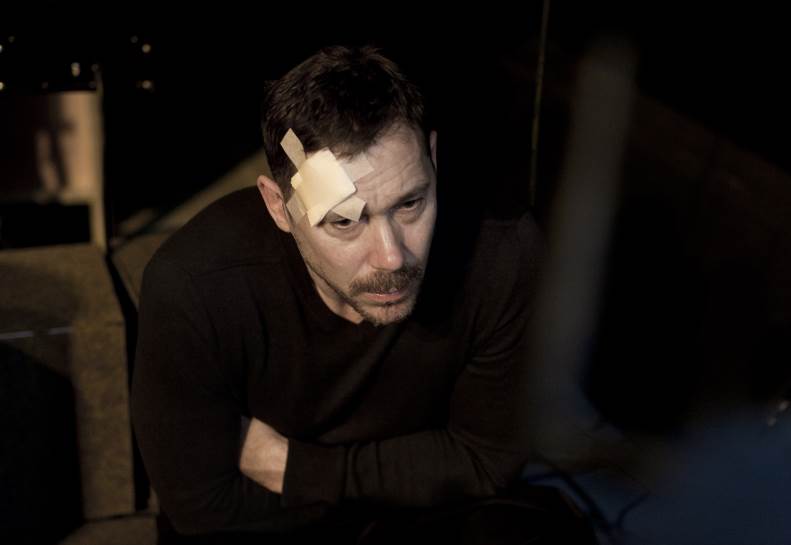
Short talks and Shakespeare scenes alternate on the set of Roman tragedies. TA actors and guest speakers such as jurist Eugène Sutorius, astronomer Vincent Icke, classicist David Rijser and cultural historian Thomas von der Dunk partake in a two-hour journey to Shakespeare’s restless, constantly altering world. Your host of the evening is director Lucas de Man.
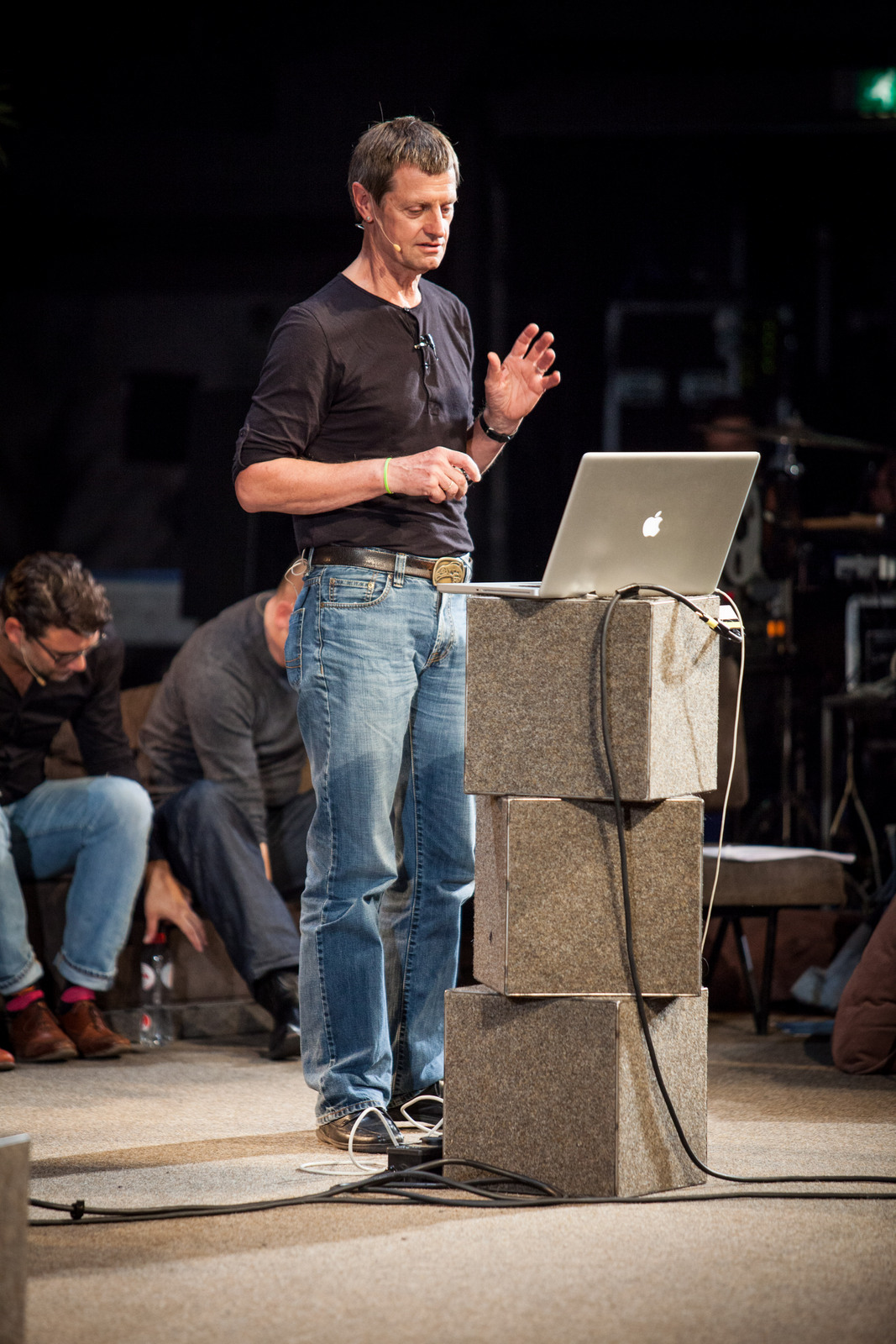
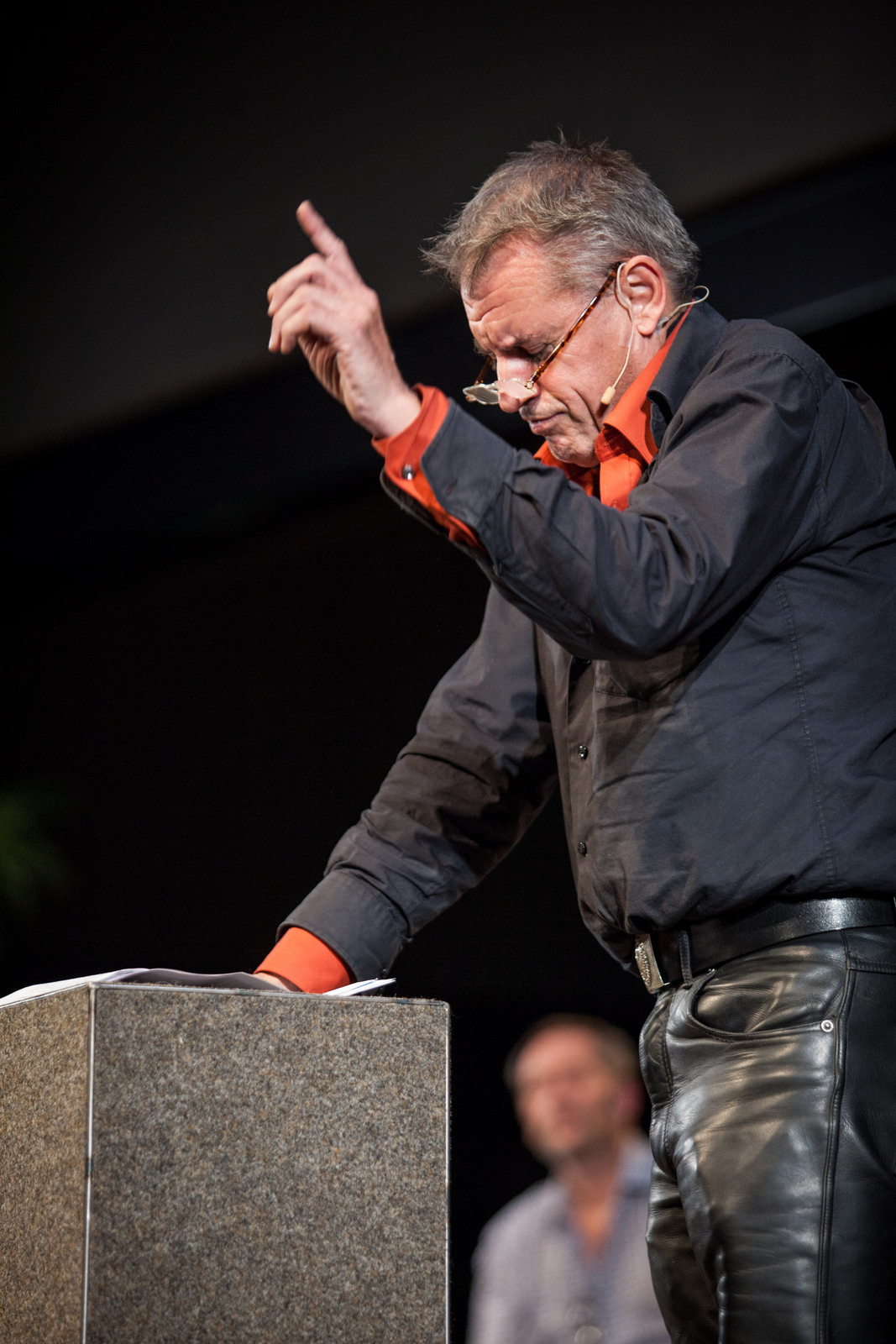
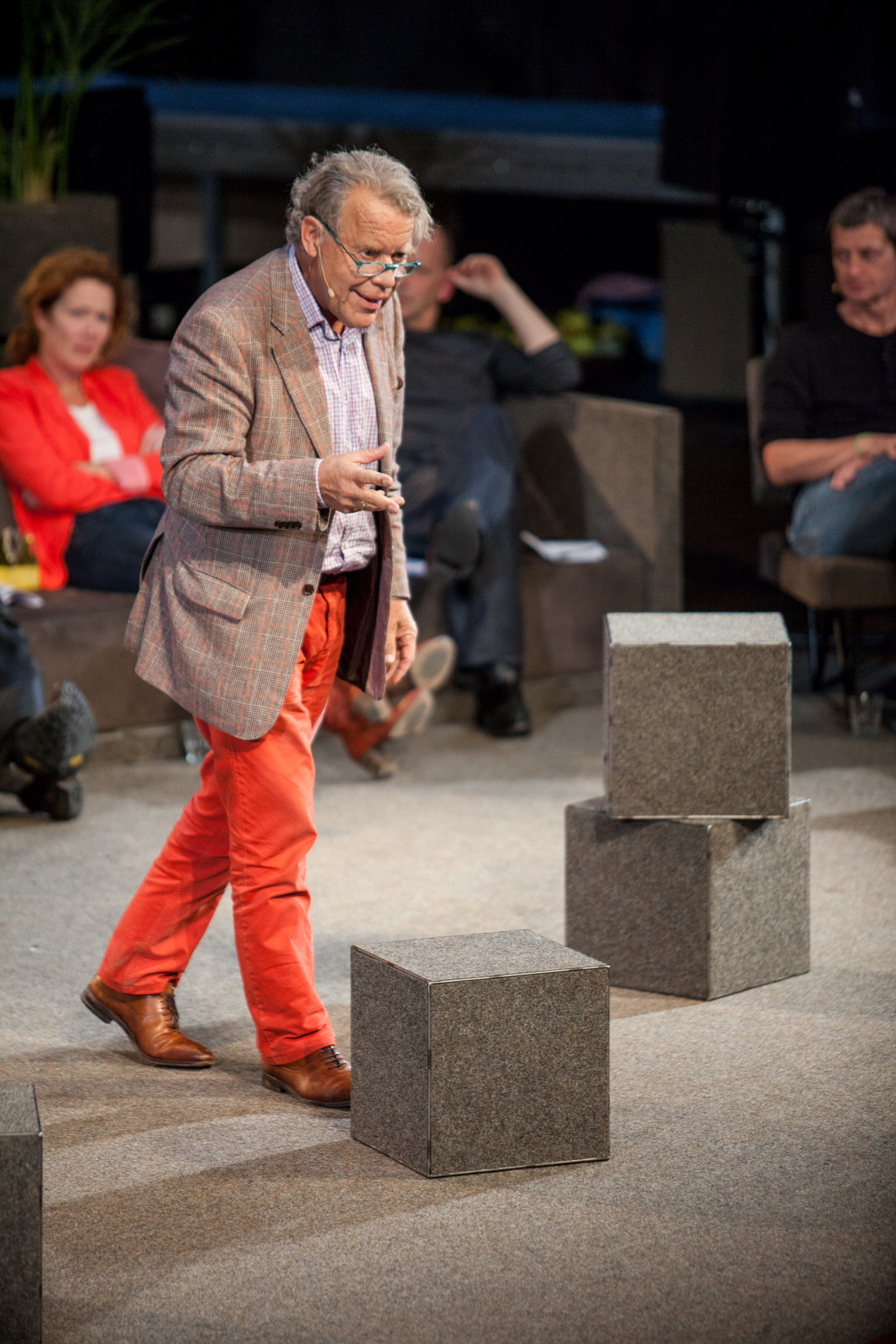
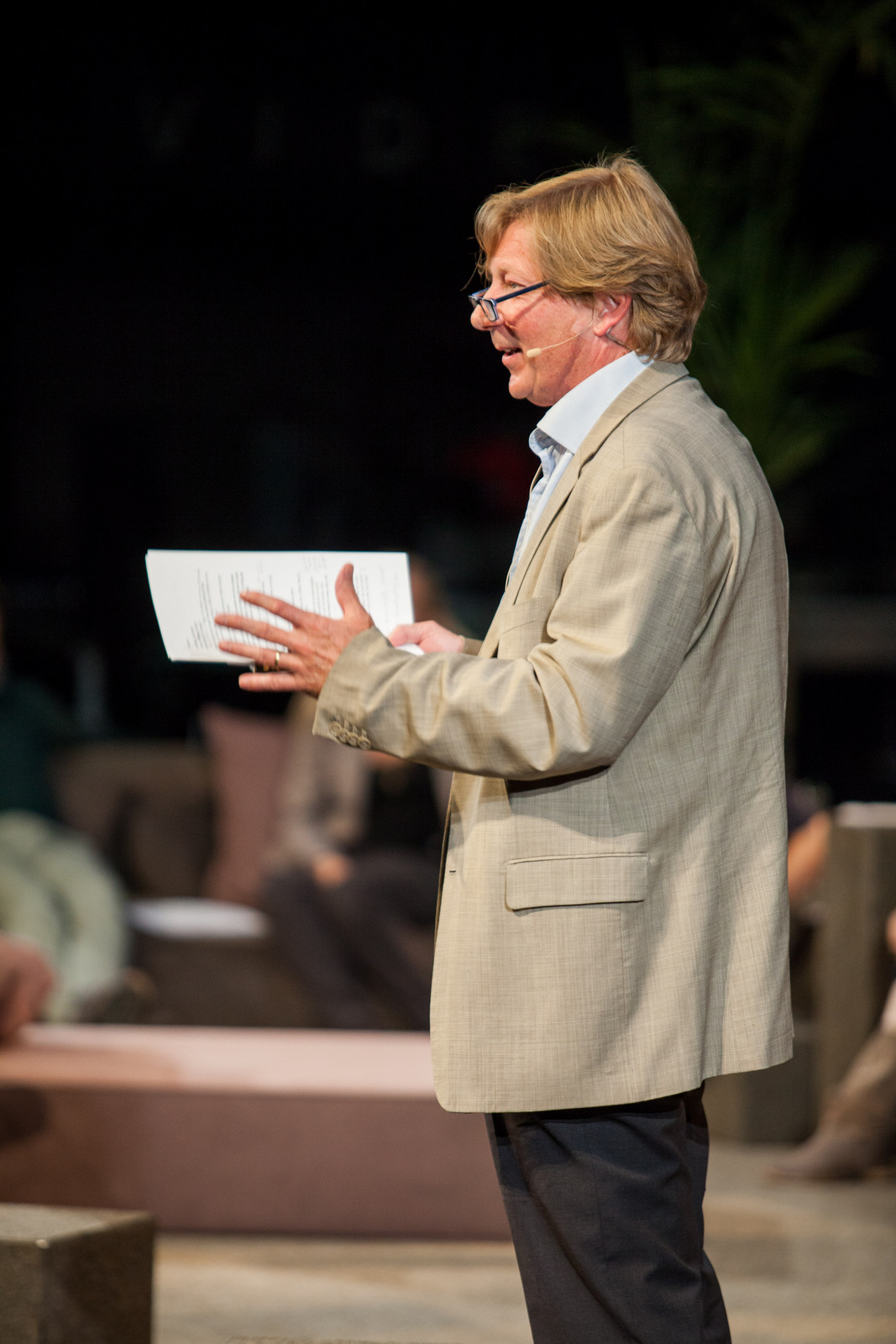
It is a given that TA has an intimate bond with Shakespeare. In light of our 25-year jubilee we retake four of his plays: The taming of the shrew, Othello, Macbeth and Roman tragedies. The question that arises here is: Can we find parallels between the current day and Shakespeare’s age in which explorations, the reformation and scientific discoveries - events because of which assumptions and positions on religion, politics and economy had to be radically altered - disjointed society? That might explain the current Shakespeare-fever that courses through the Netherlands. Or is it the other way around, that – like Ivo van Hove often states, Shakespeare’s plays are like a sponge, naturally absorbing the era in which they are performed.